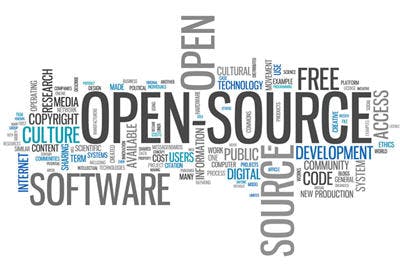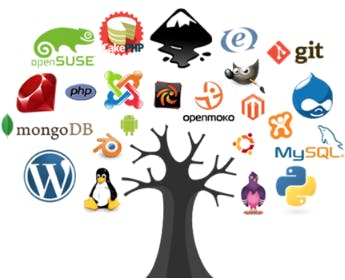
Introduction:
Open source development has revolutionized the world of technology, enabling collaboration, transparency, and innovation on a global scale. In this blog post, we will embark on a journey through the history of open source, exploring its origins, milestones, and the impact it has had on the tech industry. Join us as we delve into the fascinating evolution of open source development and discover how it has shaped the world we live in today.
The Birth of Open Source: The concept of open source can be traced back to the early days of computing. In the 1970s and 1980s, computer enthusiasts and programmers collaborated freely, sharing their source code and ideas. However, it was the Free Software Movement initiated by Richard Stallman in the 1980s that laid the groundwork for the open source movement we know today. Stallman advocated for the freedom to use, study, modify, and distribute software, which led to the development of the GNU Project and the GNU General Public License (GPL).

The Rise of Linux: One of the most influential milestones in the history of open source was the creation of the Linux operating system by Linus Torvalds in 1991. Linux gained popularity rapidly, attracting a community of developers who contributed their skills and expertise to its development. The success of Linux demonstrated the power of open source collaboration and showcased the viability of an operating system built by a distributed community.
The Cathedral and the Bazaar: In 1997, Eric S. Raymond published his famous essay "The Cathedral and the Bazaar," which helped to solidify the principles of open source development. Raymond analyzed the development models of proprietary software (the "cathedral") and open source (the "bazaar"). He highlighted the advantages of decentralized collaboration, rapid iteration, and peer review.
The Open Source Initiative and Open Source Licenses: In 1998, the Open Source Initiative (OSI) was founded to promote and protect open source software. The OSI established the Open Source Definition, a set of criteria that software must meet to be considered open source. Various open source licenses, such as the MIT License, Apache License, and GNU GPL, emerged to provide legal frameworks for sharing and modifying open source code.
Open Source Beyond Software: Although open source development originated in the realm of software, its principles and practices have transcended traditional boundaries. Today, open source is found in diverse domains, including hardware, artificial intelligence, data science, and the Internet of Things. Projects such as Arduino, TensorFlow, and Kubernetes have embraced open source, fostering innovation and collaboration across industries.

Open Source Communities and Collaboration: Vibrant communities are central to the success of open-source development. These communities consist of developers, contributors, users, and enthusiasts who come together to improve, maintain, and extend open-source software. Platforms such as GitHub and GitLab provide infrastructure for collaboration, making it easier for individuals and organizations to contribute to open-source projects.
The Business of Open Source: Open source has not only transformed the software development process, but has also disrupted the business models of software companies. Many companies now adopt open source as a strategic approach, leveraging the collaborative power of the community while providing value-added services, support, and enterprise versions of open source software. For example, Red Hat built a successful business around Linux, while companies like MongoDB and Elastic offer open source database solutions.
Impact of Open Source on Society: Open source development has had a profound impact on society by enabling access to technology, fostering innovation, and promoting digital inclusion. Open source projects empower individuals, organizations, and even governments to build robust, secure, and cost-effective solutions. Furthermore, the principles of openness and collaboration have influenced other domains, such as open data, open government, and open science.
Conclusion: The journey of open source development has been one of continuous growth, innovation, and empowerment. From its humble beginnings to its current status as a driving force in the tech industry, open source has transformed the way we create and consume software. As we look to the future, it's clear that open source will remain a catalyst for progress, fostering collaboration, and fueling the next wave of technological advancements.
